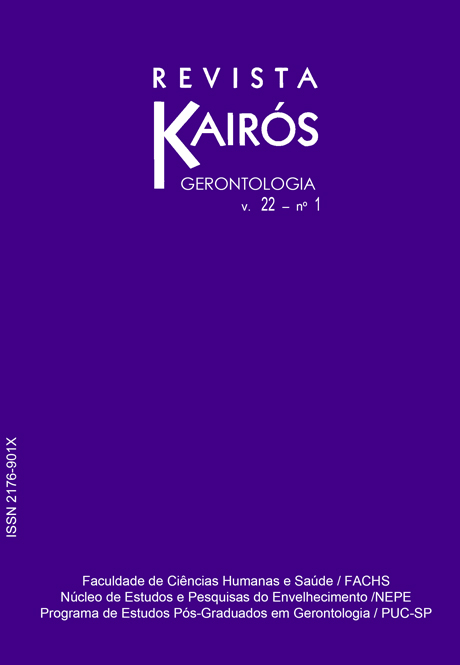Therapeutic Accompaniment in Aging - interfaces between Psychogerontology and TA Clinic
DOI:
https://doi.org/10.23925/2176-901X.2019v22i1p437-445Keywords:
Therapeutic Accompaniment (TA), Aging, Mental health, Psychogerontology.Abstract
Therapeutic Accompaniment (TA) is a form of extra-clinical clinical care aimed at those who, for some reason, are excluded from the social bond, due to emotional restrictions or physical limitations. The TA is a device of clinical intervention developed in the daily life of the companion, providing reconstructions in the relationship between the subject and their social environment, considering its uniqueness. We aim to articulate the theory of TA clinic with the practice of monitoring through a case report, allowing reflections on the importance of this device for the area of psychogerontology. The elderly can be excluded and marginalized for bearing the signs of fragility that contradict the contemporary values of our culture, such as productivity and youthfulness. An elderly person who, in addition to his or her age-related characteristics, also carries marks of psychological illness, such as schizophrenia and depression, carries a potentiated stigma. An old age lived from the perspective of madness consists in a negative social image that results in discrimination and social isolation. TA in the context of psychogerontology aims to provide greater visibility and empowerment to the subjectivity of those who age beyond the acceptable standard of old age. The study was conducted through a case report of an elderly patient followed at her home in the north of São Paulo, from February 2016 to the present. The clinical intervention through TA allowed an emotional improvement of its depressive and psychotic symptoms, allowing the resumption of domestic tasks and their social reintegration.


